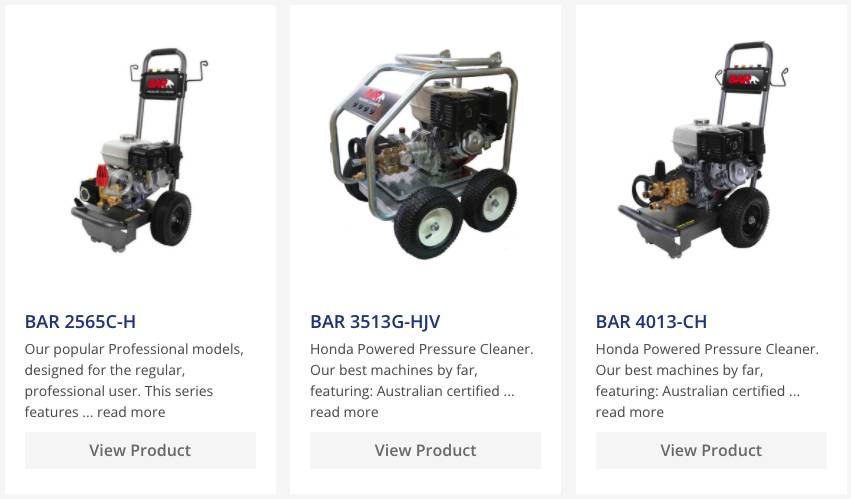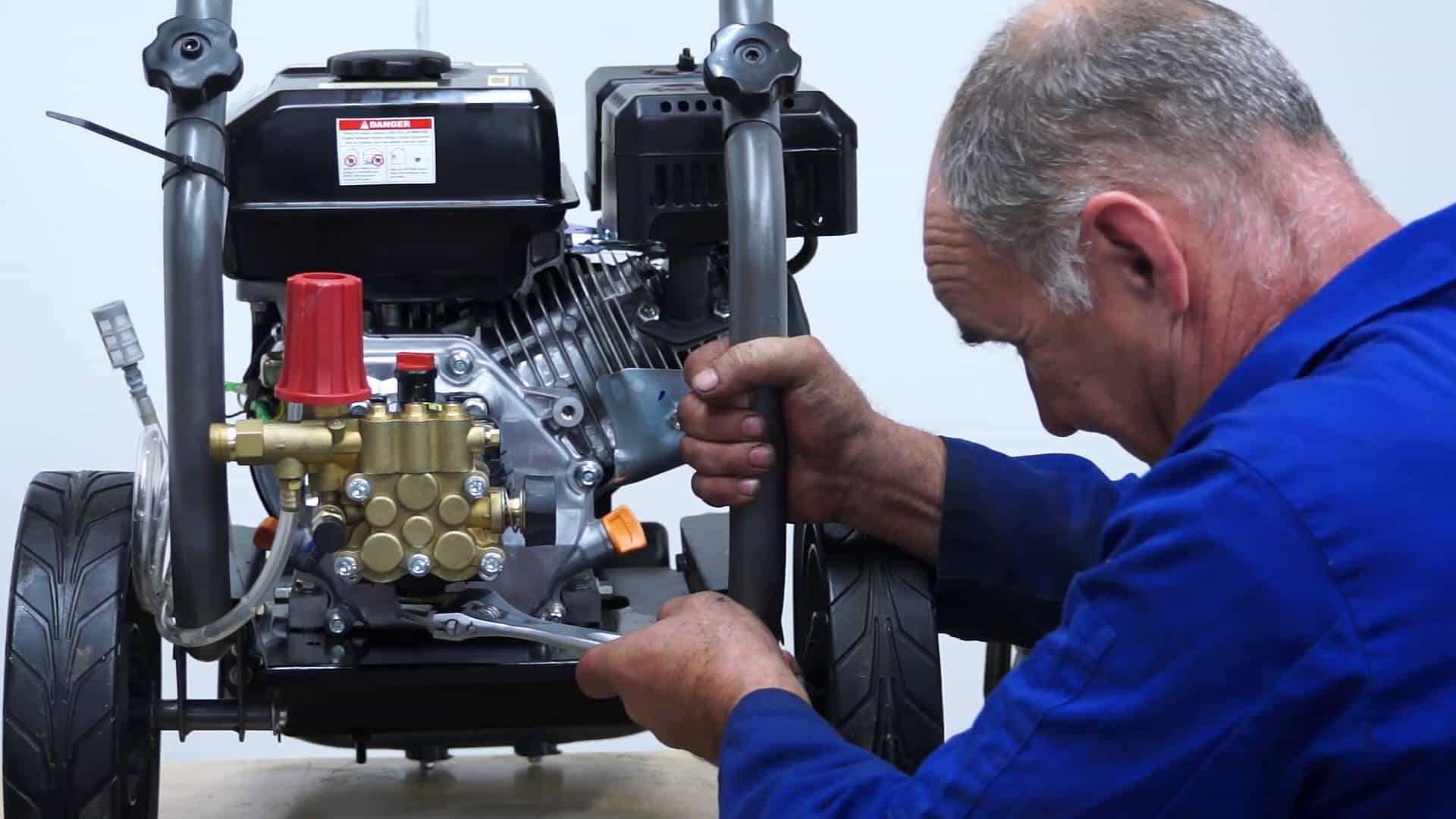You’ve probably noticed that there’s a wide range of high pressure washers out there. Making the decision on what’s best for you can be difficult. We can simplify the process by homing in on what’s important to you, and what your needs are.
In a nutshell, when choosing the right high pressure washer, you will need to:
- Choose the right type of pressure washer
- Determine whether you need the temperature to be hot or cold
- Choose a washer with the correct power

We’ll outline these steps to take below.
1. Pick a type of pressure washer
After determining that a pressure washer is the right tool to use, you’ll pick the right one. Essentially, there are 3 types of washers (based on their power source):
- Electric
- Petrol
- Diesel
Each pressure washer is unique and specialises at performing different tasks, so let’s break each of these cleaners down.
Electric
Electric pressure cleaners are generally the weakest in terms of raw water pressure output. However, their lightweight builds, the lower noise output and lower price point makes them very appealing for light domestic use and medium duty jobs.
Commercial electric pressure washers can be quite powerful, and compared to fuel-based washers, have quite low running costs. The issue is they need to be physically closer to power and water sources. Fixed environments such as wash bays can solve these problems.
Petrol
Petrol pressure washers are sturdier in build quality, so a little tougher to move around, but their powerful output results in a more efficient, and higher quality clean. While they are great for car cleaning, fence washing, and other residential uses, they aren’t suited for use in garages or sheds unless properly ventilated due to the exhaust fumes.
They’re tougher and heavier than electric washers and excel when used more frequently, making them ideal for commercial use. They usually come mounted on wheels.
Diesel
You may find diesel washers to be expensive up front, but they’re fuel efficient, and are long lasting, so as a long term investment they’re great. The heavy-weight build does come with drawbacks and may be too much if you’re looking for residential use.
The diesel washers are very much designed for commercial use, as they’re extremely reliable and can perform tougher tasks such as graffiti removal with their high end power output. They’re powerful, have a high flow rate, and shine where room for a trailer mount for the washer, fuel and water is afforded.
2. Pick a hot or cold pressure washer
Second, you will need to consider whether you’ll want a hot or cold pressure washer.
It’s important to consider this because while some washers are great for cleaning dust and debris from cars, a cold pressure washer will not be able to remove grease and oils from car parts as thoroughly as a hot pressure washer will.
The heat will weaken the chemical bond between the grease and the surface. It’s this process at a molecular level that also makes hot water washers useful for cleaning off bacteria and dirt that’s been caked into various nooks and crannies.
3. Make sure your washer has the right power
Believe it or not but some pressure washers can be detrimental to surfaces, depending on the power output of the washer.
We measure the power of washers in Pounds per Square Inch (PSI) and Gallons Per Minute (GPM) to get an idea of efficiency as well.
But to get a more specific idea of how much power you need for the different applications of a power washer, take a look at the table below. You’ll need a much more powerful washer when cleaning large areas, for example:
| PSI requirement | 1,000-2,000 PSI | 2,000-3,000 PSI | 2,900-4,000 PSI |
| Cars | ✓ | ||
| Outdoor furniture | ✓ | ||
| Grills | ✓ | ||
| Siding | ✓ | ✓ | |
| Fences | ✓ | ||
| Alfresco area | ✓ | ||
| Decks | ✓ | ||
| Boats | ✓ | ||
| Paint stripping | ✓ | ||
| Metal (unpainted) | ✓ | ||
| Large areas | ✓ |
4. Always have safety in mind
It’s hard enough to choose the right pressure washer without worrying about safety concerns. But it’s essential to think about safety both before making your purchase and during using it.
If you are planning on using your washer indoors, you should avoid petrol-based washers at all costs. The fumes can be dangerous if not used in a properly ventilated, and open space.
If you are considering usage around a pool, or any body of water a cordless washer is the safest choice, as submerged extension cords are highly dangerous electrical hazards.
These are not toys, and the amount of upkeep required is something to consider while deciding on the correct washer for you.
Checking oil and fuel levels, inspecting spray tips, power cords, and trigger locks are good habits to get into before use to ensure you’re not damaging your washer, and endangering yourself. Remember to also rinse leftover detergent and relieve any residual power/pressure in the machine by turning off the washer and spraying out the excess in a safe direction.
Safe Work Australia has published a guide for managing risks from high pressure cleaner jetting.
We hope you can now make the most informed decision about what type of high pressure washer is the right one for you. Get in touch with our team at Melbourne Jetter Centre to discuss your options further.


